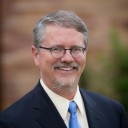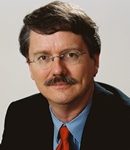This past weekend I attended an event that marked two very different anniversaries in a thought-provoking way. The first anniversary, of course, was the tenth anniversary of the 11 September attacks. The second was the 50th anniversary of the United States Peace Corps. The event was put on by the World Affairs Council of Northern California, and it got me thinking that global philanthropy could devote a good deal more attention to promoting international voluntary service, particularly among young people.
I am one of the 200,000 Americans who have served as Peace Corps Volunteers in 139 countries. I arrived at Peace Corps training in Morocco in 1982, aged 21, fresh out of university. Ten weeks later, I could speak good enough Arabic to haggle, argue, compliment, debate and befriend. I got to know Moroccan culture deeply, and this understanding has given me patience and hope over the last decade of tension between the West and Islam. I had also received excellent training as a teacher, which started a lifelong interest in education. In the 25 years since I left Morocco, my career has been about improving children’s well-being in the developing world, with Save the Children, the Bernard van Leer Foundation, and now the Firelight Foundation. In all of this work, my Peace Corps experience is never far from my mind.
Peace Corps Volunteers are given three goals – to provide technical assistance, to help others know America, and to ‘bring the world back home’, letting other Americans know about the people they served with, and the countries and cultures they got to know. My personal belief is that while technical assistance is important in the short run, it is the other two goals relating to intercultural understanding that are really important over the long term.
In the Moroccan town in which I served, most people did not think of me as American, but rather as ‘Christian’ – the general label for all that was Western or non-Moroccan. And just as I learned from my daily experience that Muslims came in all shapes and sizes and personalities, Moroccans met in me someone who was curious about their lives and ideas, who knew their aspirations and frustrations, and who understood their sense of humour. We were a revelation to one another.
I’ve been working on that third goal, of ‘bringing Morocco back home’, for 30 years, mostly in small ways, bringing Americans or Europeans together with Moroccans, conveying a vivid and hopeful image of Morocco, and supporting efforts to build understanding.
I believe that one of the ways to keep the world safer from future terrorism and international conflict is to get to know one another better, particularly across the deepest divides. I also believe that it is best to start on this when one is young. I was able to throw myself into getting to know Morocco when I was young because I was at an age where one is open, eager and unencumbered by life’s later responsibilities.
My reflection, driving home from the weekend’s event, was that we in philanthropy could do more to help intercultural youth exchange happen. Global philanthropy, like most governmental and multilateral aid, has rightly devoted a lot of energy to the tangible outcomes of the Millennium Development Goals – better incomes, more and better schooling, improved health for mothers and children. In addition to these goals, it would be useful if we could discuss how we as catalysts, convenors and long-term visionaries could make a contribution to the equally vital intangibles of respect, understanding and solidarity, and how our philanthropic investments can help develop a generation of bridge builders. Perhaps the upcoming European Foundation Centre conference in Belfast, focusing on ‘peace through social justice’, would an excellent forum to launch such a discussion.
Peter Laugharn is the executive director of Firelight Foundation







Comments (0)